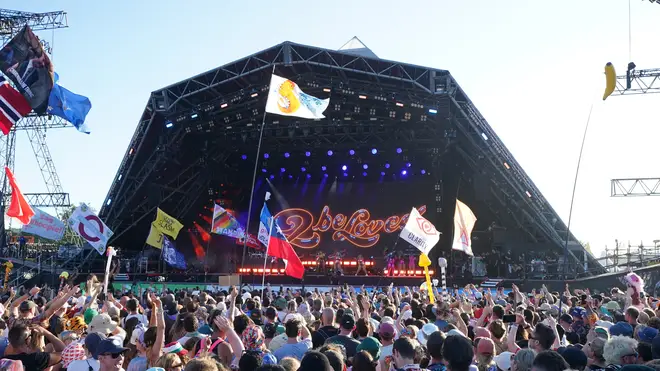
Clive Bull 1am - 4am
31 January 2024, 00:04

The voluntary code commits to improving transparency across the music streaming industry.
A new music streaming code will help to ensure UK artists get “protections” and transparency over royalties and licensing.
The UK code of good practice on transparency in music streaming, published by the Intellectual Property Office (IPO), has been signed by 12 music industry bodies, including the British Phonographic Industry (BPI).
The voluntary code commits to improving transparency across the music streaming industry and sets out standards of good practice between labels, distributors, digital service providers (DSPs) and music creators.
Viscount Camrose, Minister for AI and Intellectual Property, said the code shows how the UK is “leading the charge” to ensure creatives “get the protections they deserve when their music is played on streaming platforms”.

Included in the code is guidance that labels and publishers should signpost in a contract or elsewhere how royalties will be calculated, the means by which royalty information will be shared and the frequency with which it will be shared.
It also says they should encourage artists to seek suitable independent legal representation before signing any contract involving the assignment or exclusive licensing of their work.
Clear, timely and accurate royalty accounting information should also be given by labels, publishers distributors, DSPs or collecting societies, to any relevant parties, according to the code.
Another section says that artists should have a contractual right to audit financial information, including royalty accounting, related to the streaming of their music.
The code is a pledge from the music industry to be more transparent and failure to abide by it by the signatories does not constitute a breach of any legislation.
Mr Camrose said: “From The Beatles and The Rolling Stones to Dua Lipa and Little Mix, the UK music scene is the envy of the world.
“In the last decade, the way that we consume our music has changed markedly, and that’s why we’re taking steps to help ensure artists get the royalties and protections they deserve when their music is played on streaming platforms.
“This pioneering code, designed by the music industry with Government backing, has trust at its core.
“I’m delighted to see the UK leading the charge to ensure our peerless creative minds get the protections they deserve, as the way we listen to our favourite tracks continues to evolve”.
Lucy Frazer, Culture Secretary, added: “For decades the UK music industry has projected our soft power to the world. Our home-grown artists make awe-inspiring music that brings in billions of pounds to the economy.
“As technology continues to transform the industry, musicians must be entitled to a clear and simple way of understanding what they can expect to be paid from streaming royalties.
“I welcome the music industry working together on this, and look forward to this code being put into practice.”
The Government established an industry working group, chaired by the IPO, to agree standards and create a code of practice following Parliament’s Culture Media and Sport Committee’s Inquiry into the economics of music streaming.
The code will come into force on July 31 and a formal review of the code, also led by the IPO, will be convened two years after the date it becomes effective to consider its impact and check whether the industry has complied.